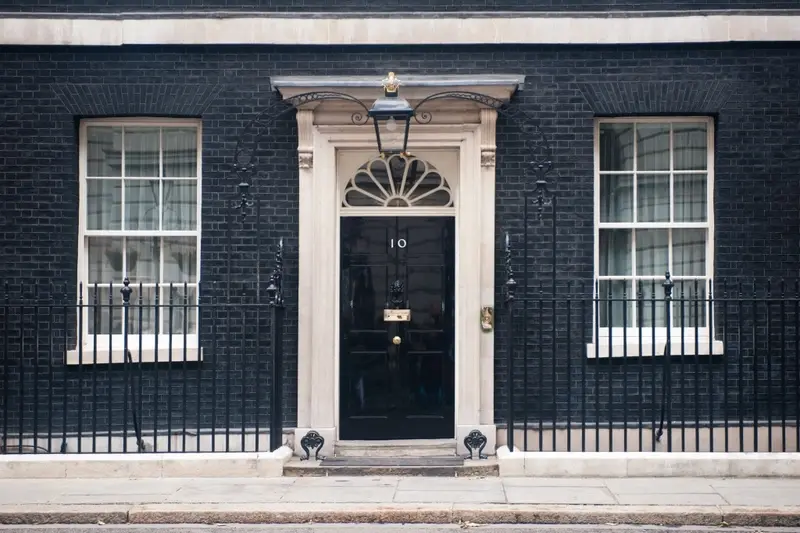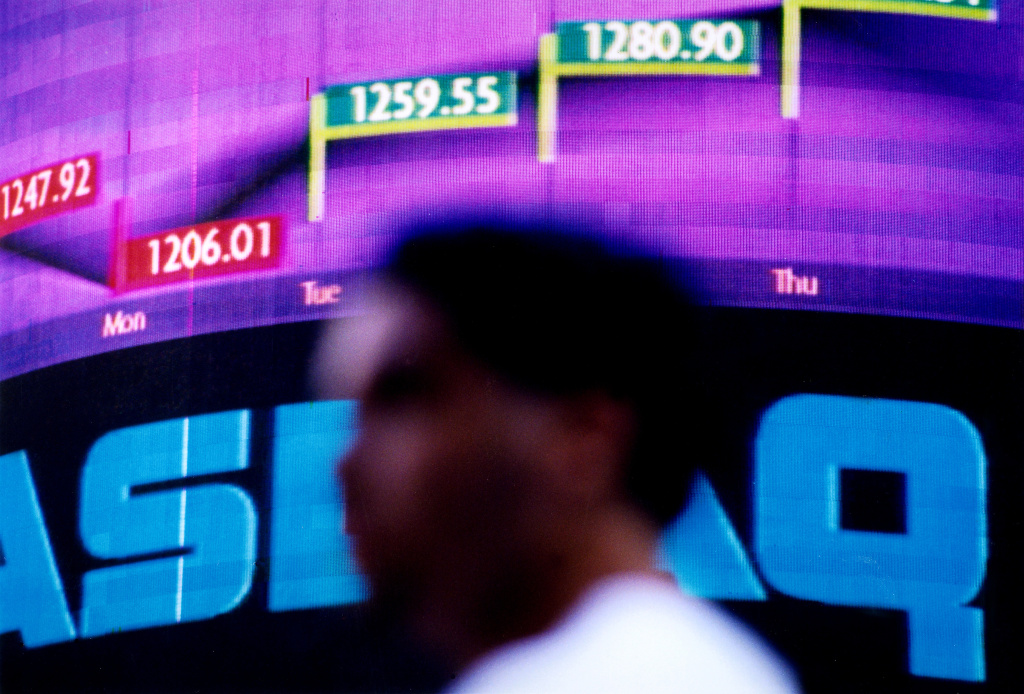
Ahead of a key reading of the US jobs market later this week, equities drifted lower in cautious trade on Wednesday.
The World Trade Organization, meanwhile, served up a gloomy forecast for the global economy, doing little to lift the mood.
UK Prime Minister Liz Truss’s fraught premiership continued. Her maiden Conservative party conference speech as PM failed to impress investors, nor the hecklers that briefly interrupted proceedings.
The FTSE 100 index closed down 33.84 points, or 0.5% at 7,052.62 on Wednesday. The FTSE 250 ended down 259.73 points, or 1.5%, at 17,562.42. The AIM All-Share closed down 4.40 points, or 0.5% at 815.44
The Cboe UK 100 ended down 0.5% at 704.04, the Cboe UK 250 closed down 1.4% at 14,990.90, and the Cboe Small Companies ended down 0.6% at 12,288.65.
The World Trade Organization on Wednesday dramatically lowered its global trade forecast for 2023, as Russia’s war in Ukraine and other shocks take their toll on the world economy.
Presenting a revision of their annual trade forecast, WTO economists said they expected the volume of global merchandise trade to grow 3.5% this year, which is slightly higher than their expectations in April.
But they forecast it would grow by only 1% in 2023 - dramatically down from their expectations of 3.4% growth six months ago.
As for the global economy as a whole, WTO economists stuck with their April forecast of 2.8% GDP growth this year, but said growth in 2023 was now expected to be just 2.3% - down a full percentage point from the previous forecast.
The pound was quoted at $1.1252 at the London equities close Wednesday, down sharply from $1.1438 at the close on Tuesday.
UK Prime Minister Truss said she would make the ‘difficult but necessary’ choices to get economic growth, but was heckled by environmental campaigners during her first conference speech as Tory leader.
Truss promised to steer the country through the ‘tempest’ - meaning wild winds and storms - and ‘get Britain moving’.
The interruption to her speech in Birmingham followed a bruising conference for Truss after just a month in the job, including a U-turn over a totemic tax policy and dissent within her Cabinet.
The prime minister insisted ‘we must stay the course’ in pursuit of her three priorities: ‘Growth, growth and growth.’
The speech was interrupted by heckling as she battled to unite her party.
Truss’s words came after the UK’s private sector suffered its fastest decline in output since the start of 2021 in September, data from S&P Global showed.
The seasonally adjusted S&P Global/CIPS UK composite purchasing managers’ index slipped to 49.1 in September from 49.6 in August. Market consensus, according to FXStreet, had predicted a reading of 48.4.
September’s print marks the second straight month of contraction. Any figure below 50.0 denotes contraction, and a number above shows growth.
In the FTSE 100, supermarket retailer Tesco dropped 0.5% after its interim sales growth was undermined by rising cost pressures.
For the 26 weeks ended August 27, the supermarket said revenue rose 6.7% to £32.46 billion from £30.42 billion the year before.
Pretax profit, however, slumped 64% to £413 million from £1.14 billion.
‘We saw significant cost inflation and some impact from a step-up in own brand sales vs branded ranges as customers took steps to manage the pressure on their household budgets,’ Tesco said.
Tesco also noted increased competition from low-budget grocers Aldi and Lidl as a result of cost-of-living pressures.
In a negative read-across, peers J Sainsbury, Marks & Spencer and Ocado all dropped.
Sainsbury’s fell 0.9%, M&S dropped 5.3%, and Ocado plunged 7.5%.
In the FTSE 250, Hill & Smith rose 4.0% as the firm said trading has been robust since June 30, with current foreign exchange rates ‘providing potential outperformance’.
The infrastructure firm completed the acquisition of the business and assets of National Signal for $25.3 million in cash. National Signal designs, manufactures and supplies off-grid solar lighting solutions for the US market.
It also completed the buy of Widnes Galvanising, to expand its presence in the northwest of the UK.
Elsewhere, Halfords jumped 12% after the motor and cycling products retailer bought LTC Trading and its subsidiary Lodge Tyre for £37.2 million to increase the service arm of its business.
‘The deal will be earnings per share accretive in the first year of ownership and will deliver an internal rate of return that exceeds the group weighted average cost of capital,’ Halfords added.
Hyve Group climbed 8.2% as it said the speed of its recovery has surpassed expectations.
For the financial year ended September 30, the London-based events organiser reported revenue of £122.0 million, jumping from £22.0 million a year prior.
This represented over 85% recovery on a pro-forma basis when compared to the 2019 financial year, before the onset of the pandemic.
Looking to the future, the business said that forward bookings totalled £68.0 million, compared to £50.0 million last year, filling it with confidence for the year ahead.
Topps Tiles rose 5.9%. The Leicestershire-based tile seller reported strong sales growth, and said it expects adjusted profit for the year to be towards the upper end of market expectations.
Sales in the year ended October 1 are up 11% to £247.3 million, rising for a second consecutive record year.
Adjusted pretax profit for the year is expected ‘towards the upper end of market expectations’ in a range of £13.8 million to £15.4 million, with a consensus of £14.6 million.
In financial 2021, Topps Tiles’ adjusted pretax profit amounted to £15.3 million.
In European equities on Wednesday, the CAC 40 in Paris closed down 0.9%, while the DAX 40 in Frankfurt fell 1.2%.
The euro stood at $0.9859 at the European equities close Wednesday, down against $0.9970 at the same time on Tuesday.
Against the yen, the dollar was trading at JP¥144.78 late Wednesday, higher compared to JP¥144.40 late Tuesday.
Stocks in New York were in the red at the London equities close, with the Dow Jones Industrial Average down 1.0%, the S&P 500 index down 1.3%, and the Nasdaq Composite 1.9% lower.
The US service sector showed a much slower contraction in September, according to the latest data from S&P Global.
The seasonally adjusted final US services purchasing managers’ index was 49.3 in September, up from 43.7 in August and broadly in line with the earlier flash estimate of 49.2.
‘Driving this improvement is a cooling of inflationary pressures in manufacturing supply chains, which is in turn alleviating cost growth for goods and energy in both manufacturing and service sectors, helping stimulate demand and allaying some concerns about the economic outlook,’ said Chris Williamson, chief business economist at S&P Global Market Intelligence.
Nonetheless, the September data rounded off the second-worst performing quarter for the sector since data collection began in 2009.
Brent oil was quoted at $93.34 a barrel at the London equities close Wednesday, up from $91.77 late Tuesday.
OPEC and its Russia-led allies agreed on a major cut in oil production on Wednesday, a move to prop up prices that could bolster sanction-hit Moscow’s coffers and irk Washington.
The 13-nation OPEC cartel and its 10 Russian-led allies agreed to reduce two million barrels per day from November at a meeting in Vienna, said Iran’s OPEC Governor Amir Hossein Zamaninia.
It is the biggest cut since the height of the Covid pandemic in 2020.
Gold was quoted at $1,709.08 an ounce at the London equities close Wednesday, lower against $1,725.92 at the close on Tuesday.
In Thursday’s UK corporate calendar, there’s third quarter results from mining firm Ferrexpo and a trading statement from tobacco firm Imperial Brands.
In the economic calendar, there is the UK construction PMI reading at 0930 BST before eurozone retail trade data at 1000 BST. The latest US jobless claims reading at 1330 BST.
Copyright 2022 Alliance News Limited. All Rights Reserved.





